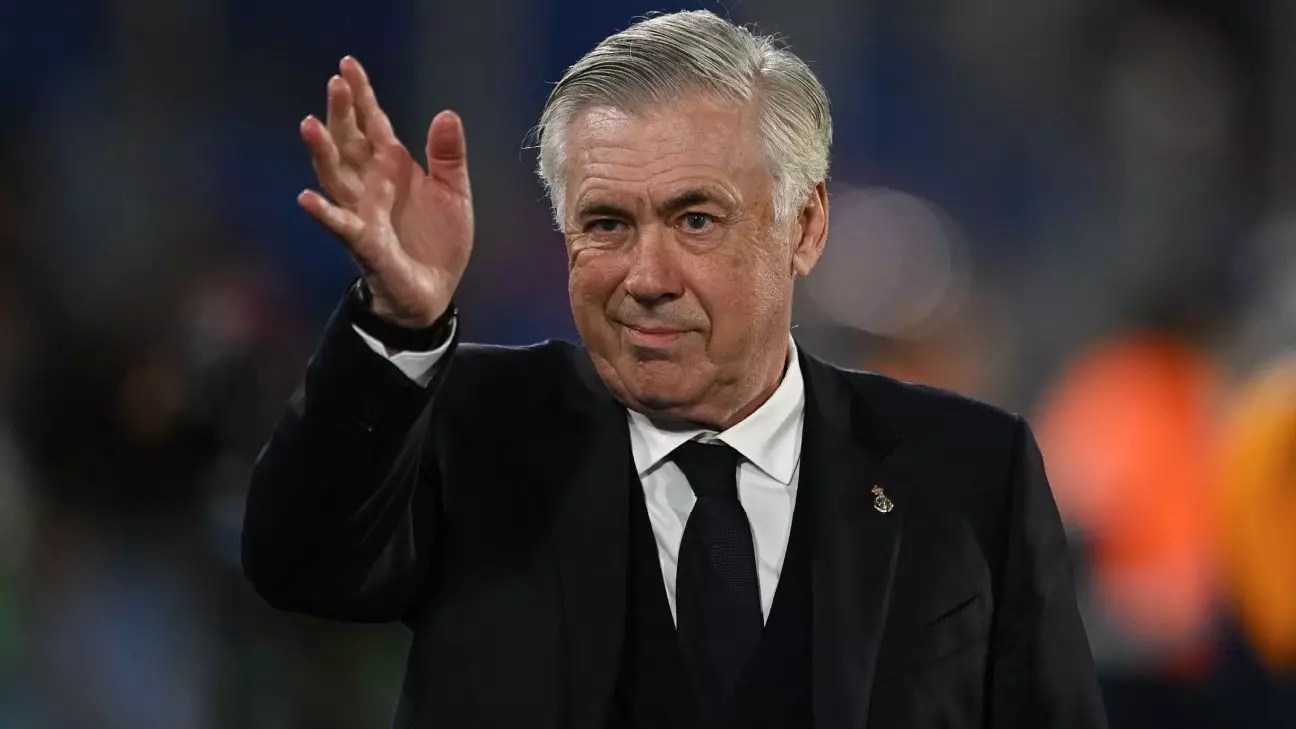In the evolving narrative of football, few clubs elicit as much passion and fervor as Real Madrid. Following a season characterized by frustration and missed opportunities, coach Carlo Ancelotti recently candidly expressed his thoughts regarding the team’s performance and recruitment strategies. Despite missing out on multiple trophies and facing persistent injuries to key players, Ancelotti’s resolve remains strong. He emphasized that the challenges faced by Madrid were not merely a result of inadequate squad depth; rather, they reflect the intricate dance between expectation and reality in modern football.
With Barcelona securing the LaLiga championship, a significant shadow looms over Madrid. Ancelotti’s admission that he couldn’t have asked for more from the club in terms of signings speaks volumes about the internal dialogue of the club. The management’s acknowledgement of the vulnerability within the team is a testament to their commitment to long-term success. However, one must wonder if this commitment will translate into strategic decisions that bolster the squad for future endeavors.
Injuries: A Disruptive Force
In a world where injuries can derail entire seasons, Real Madrid found itself particularly vulnerable this past year. The catastrophic injuries to defenders like Éder Militão and Dani Carvajal forged a defense unrecognizable from its former self. Ancelotti’s observation that injuries plagued the critical players draws attention to a systemic issue the club has faced. While he candidly refrains from casting blame on the squad’s depth, it is undeniable that Madrid’s Achilles’ heel lay in the defensive line, a fact that arguably defined their season’s trajectory.
The juxtaposition between Ancelotti’s firm belief that last summer’s transfer strategies were prudent against the backdrop of injury crises raises pertinent questions. How will the club address this fragility in the coming season? Is the right course of action to simply go for big-name players like Trent Alexander-Arnold, or should a deeper analysis of injury prevention and player conditioning be prioritized? Such conversations are critical as the club prepares for a new chapter, one where depth and resilience must be paramount.
Shifting Gears: A Promising Future
Despite the current turmoil, Ancelotti’s assurance about the upcoming signings presents a glimmer of hope. The acquisition of Dean Huijsen and discussions to bring in talents like Álvaro Carreras signify a proactive rather than a reactive strategy moving forward. This shift hints at a commitment to rejuvenate the squad with youth and dynamism while maintaining the club’s rich heritage.
As conversations swirl around their apparent next manager, Xabi Alonso, there is palpable excitement about potential tactical evolution. This infusion of fresh ideas could transform the club’s approach, especially regarding player development and match strategies. The prospect of blending Alonso’s insight with Madrid’s storied legacy invokes images of a club reborn—one that can compete fiercely on all fronts while fostering homegrown talents.
Respecting the Competition
Ancelotti’s commendation of Barcelona’s pursuit of the title underscores a level of sportsmanship often understated in football’s fierce rivalries. Recognizing the merits of opponents can be seen as a strategic maneuver—acknowledging one’s limitations is the first step toward overcoming them. Barcelona’s consistency and tactical executions provide a benchmark against which Real Madrid’s ambitions must be measured. Their journey to reclaiming dominance in Spanish football necessitates learning from the past while innovating for the future.
In the context of football, resilience often comes down to how a club reacts to adversity. Ancelotti, poised to depart for the Brazil national team’s reins, has laid a foundation that future management must build upon. The enduring identities of teams pivot on their ability to bounce back, to adapt, and to embrace the challenges that lie ahead with fervor and determination.
With a definitive end to this chapter drawing closer, the weight of legacy presses heavily on both players and management alike. Acknowledging both successes and failures creates a fertile ground for growth. Real Madrid stands at a crossroads—will it remain a giant of football, or falter amidst the chaos? As Ancelotti bids farewell, one hopes that the lessons gleaned from this tumultuous season will forge a path back to glory. The club’s resilience will ultimately define its future, one flecked with challenges yet ripe with potential. Cropping up behind the bright lights of the Bernabéu is a profound belief that Real Madrid, in all its spirit and tradition, will rise again, stronger and more formidable than ever before.


Leave a Reply